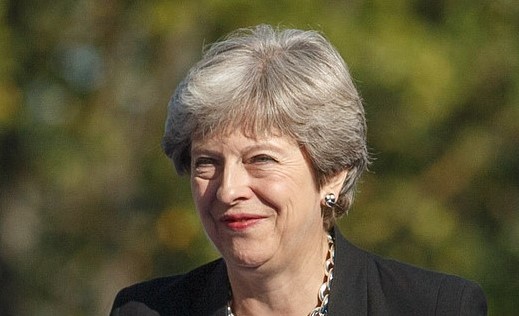A deal on post-Brexit ties between the European Union and the United Kingdom has been finally agreed by negotiators. It’s now up to the EU’s 27 leaders to review.
“The Commission president has informed me that it has been agreed at negotiators’ level and agreed in principle at the political level, subject to the endorsement of the leaders,” said European Council President Donald Tusk.
As reported by Deutsche Welle (DW), Germany’s international broadcaster, the document states that “parties envisage having a trading relationship on goods that is as close as possible, with a view to facilitating the ease of legitimate trade.”
The draft on post-Brexit ties and an agreement on exactly how the UK will withdraw from the European Union will be discussed by EU leaders at a special summit on November 25.
In a speech to Parliament, British Prime Minister Theresa May called the agreement “the right deal for the UK” and said negotiations were at a “critical moment.”
“The draft text… honours the vote of the British people, by taking back control of our borders, our laws and our money, while protecting jobs, security and the integrity” of the UK, May told lawmakers. “In these crucial 72 hours ahead, I will do everything possible to deliver (this deal) for the British people.”
Opposition leader Jeremy Corbyn, however, was critical. He called the draft “26 pages of waffle” that “represents the worst of all worlds,” and contains “no concessions” from the EU.
Not so EU Officials. They described the future partnership as “ambitious, broad, deep and flexible”. The issue on the status of Gibraltar and the issue on fishing rights have yet to be resolved.
In EU heavyweight Germany, Chancellor Angela Merkel cautioned, however, that there was still a lot of discussion to be had before the final withdrawal agreement was settled.
“I will do anything to support reaching an agreement,” Merkel said at a business summit in Berlin, with the caveat that “a disorderly exit would be the worst possible way both for the economy and the mental basis of our future relationship”.
“We have come a long way, but it will certainly still require a lot of discussion, especially within Britain,” she added.
In a separate report, Bloomberg noted that the Britain’s pound surged as investors saw the final stage of negotiations falling into place.
May’s challenge now is to convince her own lawmakers to back the deal in a vote next month. Her selling points: easy trade for goods. The deal calls for “a free trade area, combining deep regulatory and customs cooperation”.
And for the Brexiteers, who are May’s most vocal opponents, the deal hints vaguely that the UK will be able to pursue its own trade policy and also stop free movement of people.
Bloomberg also reported that it offers a way out of the most toxic part of the divorce deal – the Irish backstop that opponents of all political colours oppose as it risks keeping the UK shackled to the EU’s orbit indefinitely.

